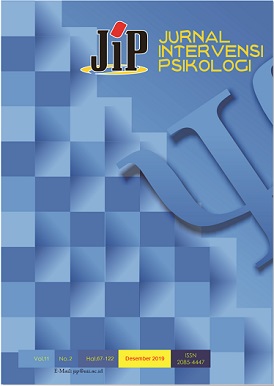Main Article Content
Abstract
Keywords
Article Details
Copyright (c) 2019 Authors

This work is licensed under a Creative Commons Attribution-ShareAlike 4.0 International License.
Authors who publish with this journal agree to the following terms:
- Authors retain copyright and grant the journal right of first publication with the work simultaneously licensed under a Creative Commons Attribution-ShareAlike 4.0 International License that allows others to share the work with an acknowledgment of the work's authorship and initial publication in this journal.
- Authors are able to enter into separate, additional contractual arrangements for the non-exclusive distribution of the journal's published version of the work (e.g., post it to an institutional repository or publish it in a book), with an acknowledgment of its initial publication in this journal.
- Authors are permitted and encouraged to post their work online (e.g., in institutional repositories or on their website) prior to and during the submission process, as it can lead to productive exchanges, as well as earlier and greater citation of published work (See The Effect of Open Access).
References
- American Psychiatry Association. (2010). Diagnostic and Statistical Manual Of Mental Disorders fifth edition. Washington DC: American Psychiatry Association.
- Bandura, A. (1977). Social learning theory. New Jersey: Prentice-Hall.
- Bandura, A. (1986). Social foundations of thought and action: A social cognitive theory. New Jersey: Prentice-Hall.
- Bandura, A. (1989). Social cognitive theory. In R. Vasta (Ed.). Annals of child development, vol.6. Six theories of child development (pp.1-60). Greenwich, CT:JAI Press.
- Corey, G. (1999). Teori dan Praktek Konseling Dan Psikoterapi. Bandung:PT Refika Aditama.
- Davison, G.C & Neale J.M. (2006). Psikologi Abnormal. Jakarta: PT. Raja Grafindo Persada.
- Gimpel, G.A. & Merrell, K.W. 1998. SocialSkill of Children and Adolescents: Conceptualization, Assessment, Treatment. New Jersey: Lawrence ErlbaumAssociates Publisher.
- Kendal, P.C. & Hammen, C., 1998. Abnormal Psychology Understanding Human Problem. New York : Houghton Mifflin Company
- Kneisl, C. R, Wilson, H. S. & Trigoboff, E. (2004). Contemporary Psychiatric Mental Health Nursing New Jersey: Pearson Prentice Hall
- Maramis, WF.(2009). Catatan Ilmu Kedokteran Jiwa. Surabaya: Airlangga University Press
- McQuaid. (2000). Development of an integrated cognitive-bahavior and social skill training intervention for older patients with schizoprenia. The Journal of Psychotherapy Practise and Research, 9(3), 149-156.
- Nevid, J., Rathus S., & Beverly G. (2005). Psikologi Abnormal. Jakarta: Penerbit Erlangga
- Varcarolis, E.M. (2006). Psychiatric Nursing Clinical Guide: AssessmentTools & Diagnosis. Philadelphia: W.B. Saunders Company.
- Stuart, G.W & Laraia,M.T. (2005). Principles and Practice of Psychiatric Nursing. (7th Edition).St.Louis: Mosby.
- Videbeck, SL. (2008). Buku Ajar Keperawatan Jiwa. Jakarta: Penerbit buku kedokteran EGC.
References
American Psychiatry Association. (2010). Diagnostic and Statistical Manual Of Mental Disorders fifth edition. Washington DC: American Psychiatry Association.
Bandura, A. (1977). Social learning theory. New Jersey: Prentice-Hall.
Bandura, A. (1986). Social foundations of thought and action: A social cognitive theory. New Jersey: Prentice-Hall.
Bandura, A. (1989). Social cognitive theory. In R. Vasta (Ed.). Annals of child development, vol.6. Six theories of child development (pp.1-60). Greenwich, CT:JAI Press.
Corey, G. (1999). Teori dan Praktek Konseling Dan Psikoterapi. Bandung:PT Refika Aditama.
Davison, G.C & Neale J.M. (2006). Psikologi Abnormal. Jakarta: PT. Raja Grafindo Persada.
Gimpel, G.A. & Merrell, K.W. 1998. SocialSkill of Children and Adolescents: Conceptualization, Assessment, Treatment. New Jersey: Lawrence ErlbaumAssociates Publisher.
Kendal, P.C. & Hammen, C., 1998. Abnormal Psychology Understanding Human Problem. New York : Houghton Mifflin Company
Kneisl, C. R, Wilson, H. S. & Trigoboff, E. (2004). Contemporary Psychiatric Mental Health Nursing New Jersey: Pearson Prentice Hall
Maramis, WF.(2009). Catatan Ilmu Kedokteran Jiwa. Surabaya: Airlangga University Press
McQuaid. (2000). Development of an integrated cognitive-bahavior and social skill training intervention for older patients with schizoprenia. The Journal of Psychotherapy Practise and Research, 9(3), 149-156.
Nevid, J., Rathus S., & Beverly G. (2005). Psikologi Abnormal. Jakarta: Penerbit Erlangga
Varcarolis, E.M. (2006). Psychiatric Nursing Clinical Guide: AssessmentTools & Diagnosis. Philadelphia: W.B. Saunders Company.
Stuart, G.W & Laraia,M.T. (2005). Principles and Practice of Psychiatric Nursing. (7th Edition).St.Louis: Mosby.
Videbeck, SL. (2008). Buku Ajar Keperawatan Jiwa. Jakarta: Penerbit buku kedokteran EGC.




